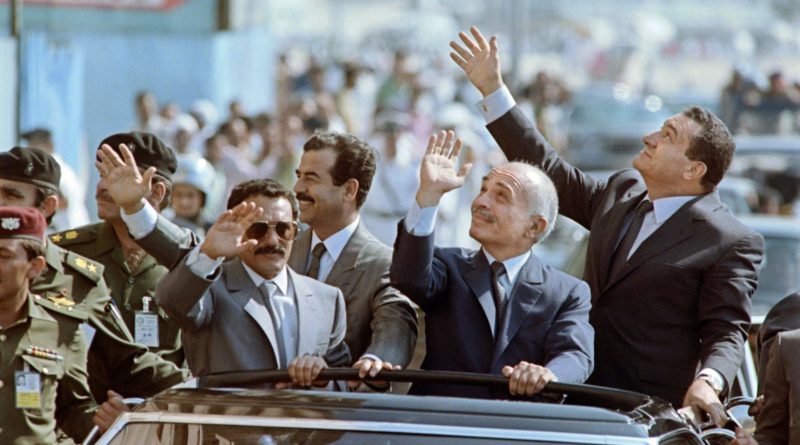Five Strongmen, and the Fate of the Arab Spring
One is in quiet exile. One was imprisoned and now lives in virtual house arrest. One remains in power, in a country shattered by war. Two met violent deaths.
The news on Monday that Yemen’s ex-president had been killed is not only a key moment in a country that is wracked by civil war, torn by a sectarian proxy struggle between Saudi Arabia and Iran and the home of what has been called the world’s worst humanitarian crisis.
It is also a reminder of the dashed hopes in the region, seven years after a fruit vendor’s self-immolation in Tunisia touched off what became known as the Arab Spring.
Here is a look at what has befallen five leaders in Egypt, Libya, Syria, Tunisia and Yemen, the countries at the center of the political uprisings that began in 2011. In only one country, Tunisia, is there a semblance of pluralist democracy.
Hosni Mubarak of Egypt
Ousted in February 2011 after nearly 30 years in power, Mr. Mubarak, 89, once symbolized the unassailable Arab strongman, and his downfall appeared to signal a political sea change. He was imprisoned and prosecuted on charges that included conspiracy to kill protesters and rampant corruption, proceedings punctuated by riveting images of Mr. Mubarak on trial in a defendant’s cage.
But public anger toward Mr. Mubarak faded as Egypt was roiled by more political upheavals: the overthrow of a democratically elected, but highly divisive, Islamist president, Mohamed Morsi, and his replacement by a military strongman, Abdel Fattah el-Sisi, who led a severe campaign of repressing dissent. In March, Mr. Sisi’s government quietly released Mr. Mubarak from prison,although he remains under an anticorruption investigation and cannot leave Egypt. He lives in a guarded mansion in Cairo.
Muammar el-Qaddafi of Libya
A quirky and ruthless leader who considered himself king of Africa, dressed in Bedouin robes and ruled Libya for more than 40 years, Colonel Qaddafi was toppled in August 2011 after a popular rebellion that was aided by NATO warplanes. He was killed two months later at age 69 by insurgents who had flushed him out of his hometown, Surt, and put his body on display in a meat locker in the city of Misurata.
Libya has since descended into a bubbling state of semi-anarchy and is a haven for human smugglers who exploit refugees and migrants seeking boat passage to Europe.
Zine el-Abidine Ben Ali of Tunisia
Mr. Ben Ali, 81, the first of the Arab autocrats to be ousted, enjoyed what critics called an obscenely opulent life. It made for a stark contrast with the struggles of ordinary Tunisians, whose despair seemed exemplified by the fate of the fruit vendor, Mohamed Bouazizi.
Mr. Ben Ali fled Tunisia with his family in January 2011 for Saudi Arabia, where the government has allowed them to live quietly and have rejected Tunisian requests to extradite him.
Ali Abdullah Saleh of Yemen
Mr. Saleh, considered one of the most cunning autocrats in the Arab world, stepped down in early 2012 after three decades of leading Yemen, the Middle East’s most impoverished country. He remained a powerful political personality and later aligned himself in with Yemen’s Houthi rebels, who have been fighting a Saudi-led military coalition for nearly three years.
He was killed on Monday at the age of 75, in an explosion of mayhem in Sana, Yemen’s capital, after he was said to have switched sides yet again, in a betrayal of his Houthi allies, who are backed by Iran.
Bashar al-Assad of Syria
Confounding predictions by Western leaders that he was next in line to fall, President Assad has remained in power through a 2011 uprising that morphed into a civil war, devastated Syria and created a staggering refugee crisis.
Assisted by allies Russia and Iran, the forces of Mr. Assad, 52, a former eye doctor, have retaken wide swaths of Syria that had been lost to a mix of insurgents and Islamist extremists. But much of his country is in ruins, with rebuilding costs estimated by the United Nations to exceed $250 billion. Negotiations to end the war remain tenuous, with no clarity on Mr. Assad’s future role.

